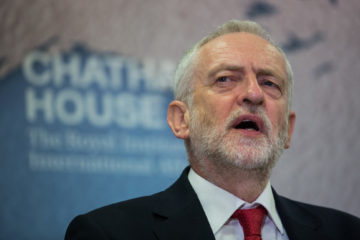Democracy Under Siege: The Institutional Underpinnings of Our Current Crisis
Chike Bascom Waugh Croslin, The London Globalist, 2012 Publication
The fashion in economic governance in recent years can be summed up in no small part by what are called the three “-ations:” liberalization, deregulation and privatization. While the debate over the application of these to financial markets has been heating up in recent years thanks to the crunch of the global financial crisis, there has been relatively little attention paid to their political implications. Yet as citizens concerned about the structural integrity of their democracy, we must ask how the three “-ations” have affected our democratic institutions.
According to the political scientist Robert A. Dahl, democratic institutions can be evaluated along two broad measures: public contestation (open and adequate competition) and political inclusiveness (universal suffrage plus the extent to which citizens’ preferences are taken into account during the policy-making process). Of course it is utopian to suggest that any democracy can really match up with these perfectly, and the quality of these measures depends on various institutional guarantees.
One such guarantee is that of political equality: the preferences of all people are to be weighted equally. The manifest decline in the strength of this basic guarantee has been instrumental in perpetuating the ongoing financial crisis in the United States. As a result, the crisis is much more than an economic problem. The politics behind it must be understood in order to correct what has gone wrong with the system—in order to protect democracy against its latest oligarchic backslide. In this spirit, the following question must be asked: what role did changes in democratic institutions play in this crisis, and what makes these unfavorable changes so hard to eliminate?
Our System Before
To begin, here is a brief description of the role of business in any market democracy. When considering the necessarily privileged role of private enterprise in such a system, it can be appreciated just how utopian some democratic principles really are. Almost everything people use on a regular basis depends on business; from the gasoline in our cars to the cell phones we regularly top up.
People depend on business to provide the standard of living to which they are accustomed. Not only that, they depend on it for jobs, allocation of resources, production, and growth in general. Given that everyone is dependent on business for their economic security, it is obvious that business does have an irreplaceable role within the system. It also becomes clear how and why business gets its privilege; a failure in any of the elements mentioned above would be disastrous for society as a whole and could easily bring down a government. Thus, government has a controlling interest in making sure that it provides the best environment and incentives for business to flourish, which in turn means that in order to keep citizens content government must pay rapt attention to the preferences of big business. Therefore business enjoys unprecedented access and immediate and careful consideration of their demands, as well as deference on many issues impacting the market.
Charles Lindblom, a political scientist writing in 1977, argues that business executives make up a separate set of unelected officials, who, because of their importance to the system, are in constant rivalry with government. This arrangement is not always undesirable however. Certainly people might want those directly in charge of economic security to receive some deference for the initiatives crucial to their ability to provide it. Yet it becomes clear that the scope of democratic rule is circumscribed in a market based system. A government is alternately cooperating with, deferring to, or reasserting is power in relation to, business, an unelected category. This does not, however, mean that business can have whatever it likes. Without government to watch over them, markets often fail.
Social Scientists have identified several ways in which this can occur. It is the relative certainty that markets will fail if left alone that drives the logic behind government regulation and intervention. However, the form of the intervention or the specifics of the regulation are usually the subject of heated debate among academics and politicians alike.
What Happened?
Here, the failure of most businesses concern is known as uneven development. To put it succinctly, the unfettered operation of markets leads to serious inequality that often takes the form of monopolies, which, through exploitation and barriers to entry, can lead to even more entrenched inequalities and facilitate undesirable consequences for society. The tendency of markets to create large inequalities in wealth (and its correlate political power) undermines the functioning of the system. It is to prevent this that government utilizes intervention and puts regulation into place.
One can construct a picture of society as divided into three parts: business, government, and everyday citizens. In order to ensure adequate provision for citizens, government mediates between the them and business, trying to strike a balance between having enough of the right kind of regulation to prevent harmful market failures while simultaneously ensuring that incentive structures encourage the entrepreneurial spirit that provides citizens with the standard of living to which they are accustomed. At the same time it also fights to maintain its own decision-making scope and ability to perform this function. In recent years the ideological shift in how to manage the market (culminating in the three “-ations”) has facilitated an institutional shift that continues to undermine the ability of government to mediate effectively. Two elements of this shift have been especially pernicious: deregulation and privatization.
The primary way that government manages its relationship with business and that of business with citizens is through regulation. However under neo-liberalism, the academic movement providing the main justification for the three “-ations,” governments are seen as corrupt and inefficient. Economic efficiency, then, would be maximized in the absence of government regulation or interference—with “free” markets. From the point of view of private enterprise, deregulation is desirable because it cuts the costs of complying with regulation and opens up new and highly profitable ventures.
But there is a problem—cutting regulation removes the tools used to prevent the market failures we discussed earlier. This loss of ability to regulate complicates the issue of uneven development. Because of government’s inability to maintain appropriately competitive conditions (which it does by regulation) some firms grow larger and larger, squeeze out the competition, and use their power to effect a redistribution of wealth from poor to rich.
A Vicious Circle
Firms that obtain what amounts to a monopoly also become difficult to eliminate because of their importance to society at large. Society’s dependence on them thus gives them license to engage in risky ventures. Due to the important functions business plays in our system, government must rush to the rescue when it fails.
This in turn provides a perverse incentive that encourages business to take on riskier and riskier ventures, since losses can be passed on to government (and the taxpayer). This is the basic logic underlying the infamous banking crisis and bailouts of 2008. The mantra “too big to fail” surrounding banks hearkens back to the problem of uneven development and the absence of protective regulation.
Had this regulation (such as the separation between commercial and investment banks) been maintained, government could have avoided creating the incentives that led banks to engage in the risky ventures whose consequences we know all too well.
There is an even more pernicious problem, however. Deregulation in this case birthed not only a powerful example of moral hazard, but also encouraged an increase in undesirable political investments. According to David Beetham, a renowned political scientist at the University of Leeds, these can be placed in two categories that correspond directly to deregulation and privatization: buying informal influence and revolving doors.
The first of these consists of the usual suspects: campaign contributions, campaign media advertising, lobbying, the funding of think tanks, and corporate hospitality. Their explicit purpose is to expand the influence of business in the policy arena. The ability to use these is supported again by deregulation—as regulations designed to limit or make transparent the aims, outcomes and targets of these investments disappear, these methods of influence become more effective.
The second category, revolving doors, is aided and abetted by privatization. Due to the idea that government should seek its civil servants and public officials from the private sector (ostensibly because it provides a rich source of experience), many top economic officials enter office with important ties to business. This means that business is not just lobbying officials, but former and future colleagues.
The astute reader will notice that removing fetters from markets does not imply their disappearance. Unfettering the market means fettering government. The increased influence of business over government manifested through the aforementioned channels is one important way this occurs. Such influence even restricts the latter’s ability to perform basic functions of state capacity—despite widespread dissatisfaction with the current arrangement, government has been unable to enact policies to reverse this dramatic growth in inequality or even to fund itself by levying taxes on the wealthiest members of society.
Consequently we have seen a sustained inability of government to deal with the crisis. The kind of legislation that would ameliorate our current condition and prevent it in the future is consistently blocked by the exercise of undue influence on the part of business.
What Does This Mean for Democracy?
There was mention earlier of two broad institutional measures of democracy: public contestation and political inclusiveness. It was also previously said that these must be supported by a host of institutional guarantees (such as freedom of speech, right to vote) to give them any real meaning. One such guarantee, that preferences are to be weighted equally, has all but disappeared—taking with it much of the democratic aspiration to political inclusiveness.
Lindblom was quite right to question the democratic credentials of market based systems when he exposed the privileged role of business. However, what is apparent now is that this privileged position is looking more like government capture, and democracy is looking more like an oligarchy.
Furthermore, the tendency of this complex to reinforce itself makes it difficult to find a leverage point at which to pull these destructive arrangements apart. The challenge for people exercising their voice (such as those involved in the “Occupy” movement) centers squarely on this issue. How can change be effected in the face of such daunting (and wealthy) opposition? The answer will involve the effective use of voice and exit on a local, national and increasingly international scale.
Yet the use of these must be targeted—a fact that exposes the information problem created by the non-transparent nature of the current (re)arrangement. This entails substantial mobilization not only of the voting public, but of a media committed to widely disseminating accessible accounts of what the institutional threats are.
The United States (as well as other liberal democracies in a comparable situation) has a civic culture, and citizens are willing to use their voice. But for targeted coordination to occur, they must see in a transparent fashion how the current arrangement challenges not only citizens’ wallets but also the core values of democracy.


